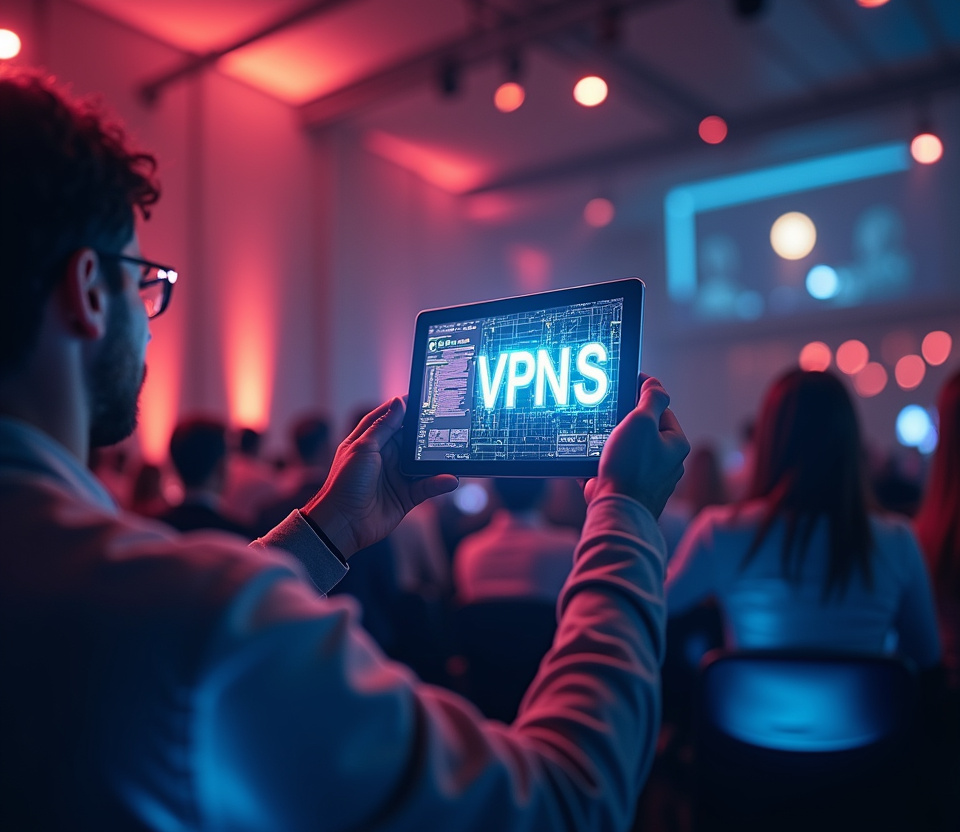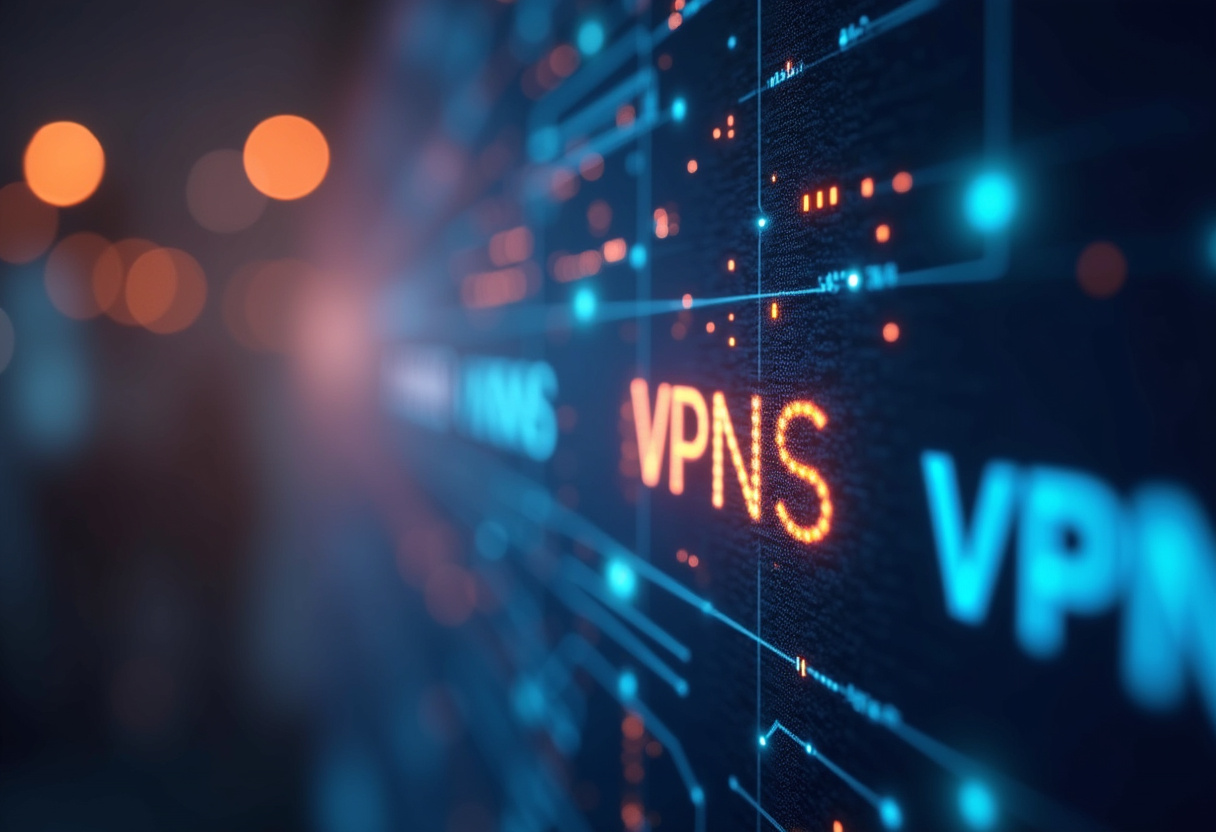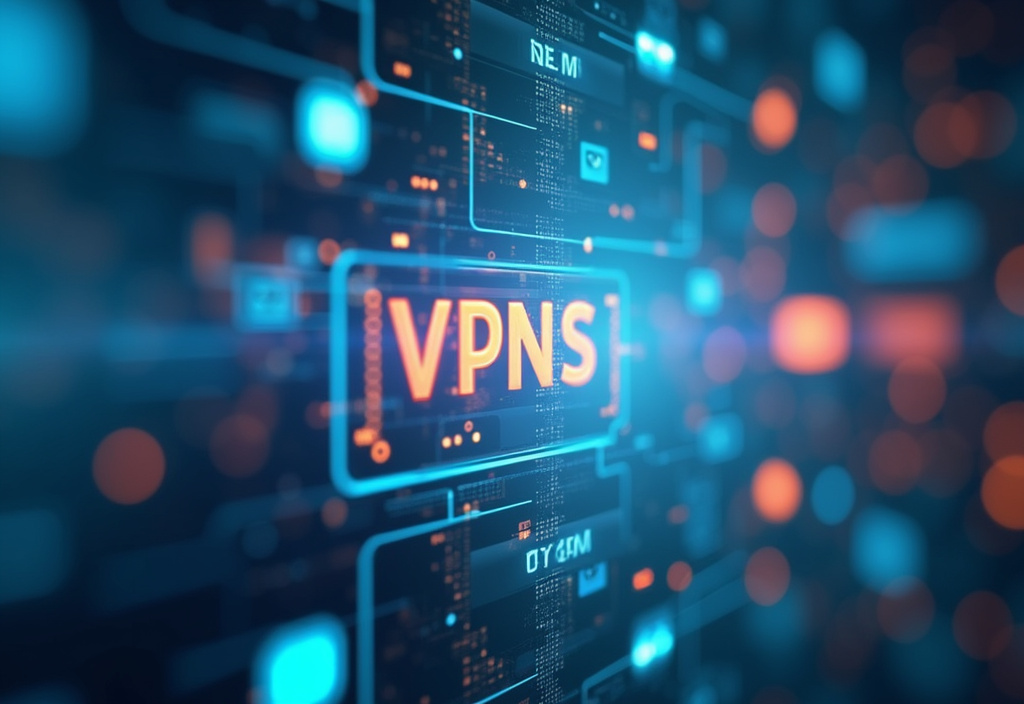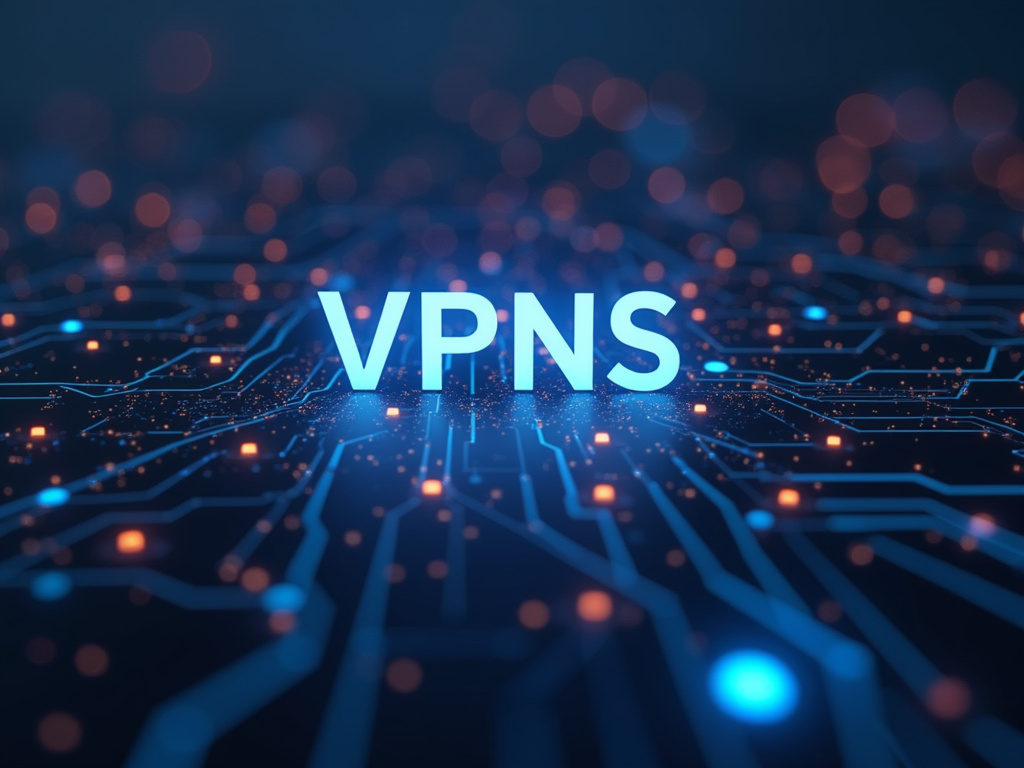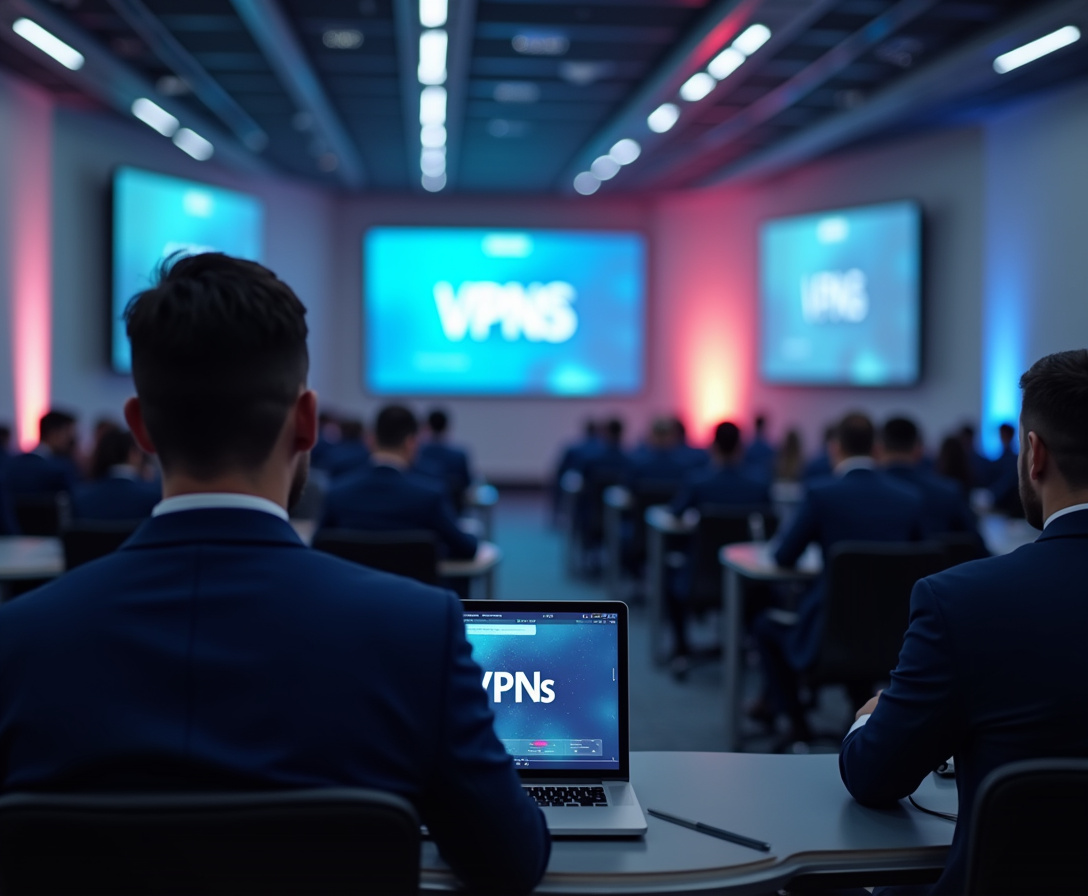VPNs for Conference Call Providers: Securing Communication Channels
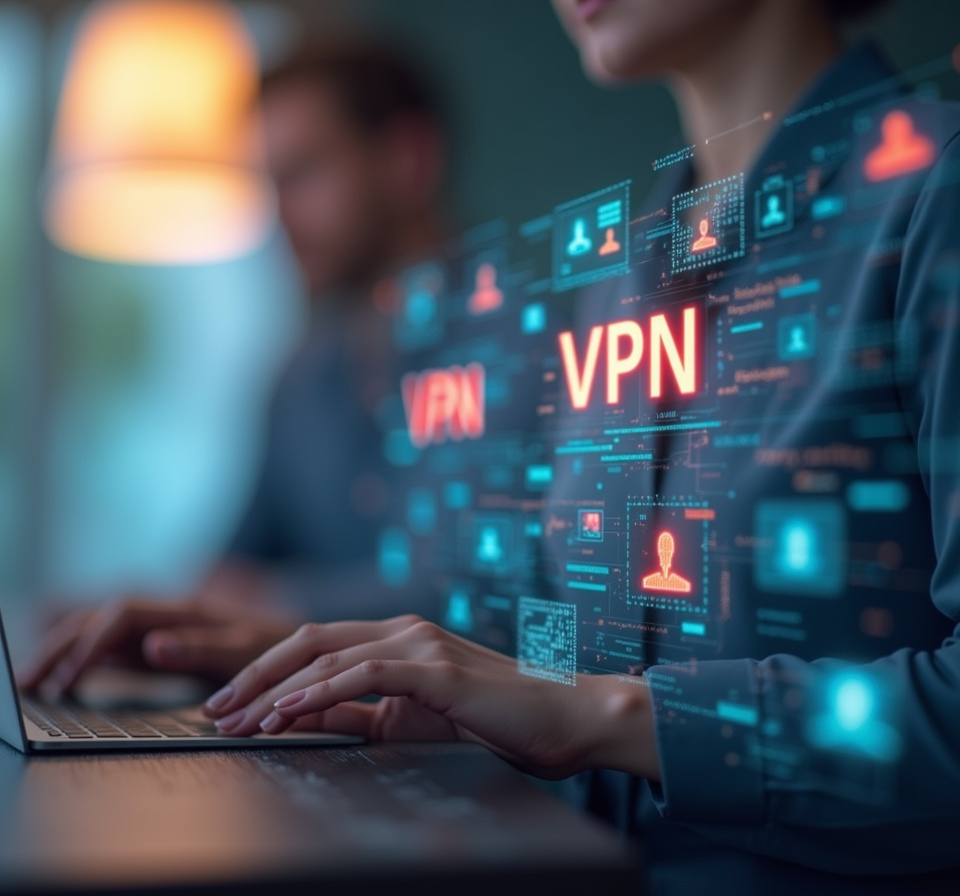
Table of Contents
In an era of unprecedented digital interconnectedness, where remote collaborations and virtual meetings have become indispensable for businesses of all sizes, the security of conference calls has emerged as a paramount concern. Businesses are increasingly dependent on digital platforms to facilitate communication, share sensitive information, and make critical decisions. However, the inherent vulnerabilities in these digital channels present a significant risk of eavesdropping, data breaches, and unauthorized access, threatening the confidentiality, integrity, and availability of vital business operations.
This article delves into the pivotal role of Virtual Private Networks (VPNs) in fortifying the security landscape of conference call providers. We will explore how VPNs, designed to create secure and encrypted tunnels for data transmission, provide an essential layer of protection for the sensitive information exchanged during virtual meetings and beyond. The integration of a carefully chosen and diligently implemented VPN solution is no longer a mere luxury but a necessity for conference call providers seeking to build trust with their users, maintain a competitive edge, and guarantee a safe and reliable platform for global collaboration.
The rise of remote work has propelled conference calls into the mainstream, effectively turning them into virtual boardrooms where confidential strategies are discussed, sensitive data is presented, and critical decisions are made. The potential risks associated with unsecured conference calls are substantial. Competitors, malicious actors, or even disgruntled employees could potentially intercept these calls, gaining access to confidential information that could be used for financial gain, competitive advantage, or even sabotage.
The consequences of such breaches can range from financial losses and reputational damage to legal liabilities and regulatory penalties. Therefore, conference call providers must take proactive steps to protect the security and privacy of their users' communications. The concept of a 'conference call VPN' is rapidly gaining traction as a key component of a comprehensive security strategy for businesses using digital communication.
It represents a proactive approach to mitigating potential risks, by encrypting data and masking IP addresses, making it significantly harder for unauthorized parties to intercept and access sensitive information shared during calls. The use of a VPN is particularly critical for businesses that handle sensitive information, such as financial data, customer records, or intellectual property. In these cases, the potential for damage caused by a data breach is significantly higher, making the investment in a strong VPN solution a wise and necessary precaution.
Furthermore, 'user data protection' has become a central theme in the modern digital landscape, driven by increasing awareness of privacy concerns and stringent regulatory requirements. Regulations such as GDPR in Europe, and CCPA in California, mandate that organizations take reasonable measures to protect the personal data of their users. Failure to comply with these regulations can result in substantial fines and reputational damage.
By implementing VPNs, conference call providers demonstrate a concrete commitment to protecting user data and maintaining compliance with relevant regulations. The ability to offer 'private calls' is also a major selling point for conference call providers. Users want assurance that their communications are confidential and secure, especially when discussing sensitive or proprietary information.
A VPN provides that assurance by creating a secure and encrypted tunnel that protects the audio and video streams from eavesdropping. This fosters trust and encourages users to use the service with confidence, knowing that their privacy is being protected. Ultimately, the implementation of a 'VPN for telecom' solution is an investment in the long-term sustainability and success of a conference call provider.
By prioritizing security, privacy, and reliability, these providers can differentiate themselves in a crowded market, build strong relationships with their users, and establish a reputation as a trusted and secure platform for global collaboration. The future of conference calls is undoubtedly secure, and VPNs are playing a critical role in making that future a reality.
The core function of a VPN within the realm of conference calls is to establish a secure and encrypted tunnel, providing a protective barrier for all data transmitted during the session. This tunnel effectively shields audio and video streams, along with any shared files or screen content, from unauthorized interception. When a participant joins a conference call via a VPN, their internet traffic is meticulously routed through a designated VPN server.
This crucial step not only masks their individual IP address, thereby enhancing anonymity, but also encrypts the data before it ventures onto the public internet.The encryption process transforms the data into an indecipherable format, rendering it virtually impossible for external parties to comprehend the communication even if they manage to intercept the transmission. The strength of this protection hinges significantly on the employed encryption protocols, with AES (Advanced Encryption Standard) standing as a cornerstone. AES, a widely acclaimed and exceptionally secure encryption algorithm, forms a formidable defense against brute-force attacks and other attempts to compromise data integrity.
By deploying AES encryption, conference call providers offer their users heightened 'communication security', assuring safety and a layer of protection against intrusion to their communication data. Beyond encryption's protective shield, a 'conference call VPN' acts as a stalwart against man-in-the-middle attacks, scenarios where malicious individuals attempt to intercept and manipulate data mid-transmission. The encrypted tunnel erected by the VPN makes it exceedingly difficult for attackers to infiltrate the communication stream.
This is particularly vital during conference calls handling discussions of sensitive matters like strategic decisions, negotiations, financial data or legal information. Furthermore, in tandem with encryption, VPNs introduce enhanced authentication protocols, verifying user identities before granting access to a conference call. This feature is pivotal to restrict unauthorized individuals from joining and accessing private conversations and data.
Multi-factor authentication (MFA), combining multiple forms of verification such as a password and a code sent to a user’s device, significantly reinforces 'user data protection'. This ensures enhanced security and adds a layer of protection against potentially compromised credentials. By integrating these authentication protocols, conference call providers ensure authenticity and integrity among participants.
Access control also plays a vital role in enhancing security, 'private calls' and overall 'VPN for telecom' security. The effective use of VPNs allows telecom providers to implement strict controls on how individuals access communication on their platforms. Permissions can be allocated at many levels, ensuring individuals only have access to what is necessary while taking part in communications using the platform.
Controls like these limit how successful attacks may be, as attackers will not have access deeper within the system simply on the basis of breaching an individual account. In addition to security and encryption capabilities, having a VPN can also ensure stable lines of communication and support. VPNs give options for selecting different routes for routing traffic to specific locations.
By selecting servers closer to those using the telecom platform, providers can optimize call times and reliability to make the best quality experience. The location flexibility of the VPN also allows providers to circumvent regions or network problems, routing traffic through different locations to ensure communication continuity. Conference call platforms also have other methods of support to ensure data safety.
As the platform infrastructure is separated from the end users by its integration with VPN infrastructure, a conference call VPN offers another level of abstraction so that users may easily connect from untrusted places. In conclusion, by integrating all these characteristics, conference call providers offer a better and more dependable experience for conference calls and related functions. These VPNs also provide security, stability and increased controls in place so that individuals on the platform can communicate safely about their data.
Beyond actively safeguarding data during live conference calls, VPNs provide valuable ongoing protection for user data in storage. Conference call providers frequently maintain user profiles, meeting recordings, shared documents, and other sensitive data on central servers. A robust VPN solution can be strategically deployed to encrypt this data, greatly reducing the risk of unauthorized access and theft.
The encryption can be applied to the entire server's file system or selectively to specific directories containing the most sensitive user data. Implementing encryption throughout the server architecture protects against intrusion and data theft. In tandem with securing stored data, VPNs also play a critical role in securing lines of communication and traffic between the conference call provider's servers and user equipment.
This is particularly notable when using mobile devices, as they may connect to conference calls on public Wi-Fi. A 'VPN for telecom' provider helps ensure data exchanged between participants is secured. This extra step taken during data transmission ensures that no eavesdropping or manipulation ensues.
Additionally, the use of a VPN to shield data can enable conference call providers to be more responsive when it comes to complying with data privacy requirements, like GDPR and CCPA. Requirements of this type state entities must take steps to store and protect data with reasonable processes to provide the protection requested for confidential user data. VPN inclusion helps organizations show their commitment to these specifications.
When the VPN is properly configured, it can also allow enhanced stability and continuity on conference calls. The routing servers are already customized to assist with routing signals and data through the network. The routing minimizes latency that is optimized to offer the most efficient path.
This is also key when it comes to overseas conference calls that may be subject to differences in regulations. When selecting 'conference call VPN' services, it is important to consider security factors and elements that enhance optimal 'communication security'. Providers must make sure their infrastructure complies with industry regulations that govern data management and communication practices.
Selecting server locations may also enhance performance to make reliable conference calls. This entails making decisions about the server location and considering the way calls are routed through those locations. Choosing a local VPN provider also enables the data stream to travel across a closer digital range, ensuring signals minimize latency and disruption.
It is key in ensuring 'user data protection' in selecting a VPN provider that focuses on protecting user activity and preventing intrusive logging functions. To ensure the security of user information, providers must provide full transparency about their data logging and processes. Transparency builds trust among those using the platform regularly.
It is fundamental for providers to offer transparency and offer insight to the processes involved in maintaining that secure conference calls are a top priority. In conclusion, integrating these different parts empowers conference call providers to ensure continuity in their communication practices. In doing so, providers improve connectivity as well as the potential security concerns for participants, so all data transmission is seamless.
Selecting the appropriate VPN protocol is a crucial decision that significantly impacts the security and performance of conference calls. Different VPN protocols offer varying levels of encryption, speed, and stability. Understanding the strengths and weaknesses of each protocol is essential for choosing the one that best meets the specific needs of a conference call provider.
Some of the most common VPN protocols include OpenVPN, IPsec, L2TP/IPsec, and WireGuard. OpenVPN is a widely used and highly regarded open-source protocol that offers strong encryption and excellent security. It is known for its flexibility and compatibility with various operating systems and devices.
OpenVPN is generally considered a solid choice for conference call providers seeking a balance between security and performance. IPsec (Internet Protocol Security) is another robust protocol that provides strong encryption and authentication. It is often used in conjunction with L2TP (Layer Two Tunneling Protocol) to create a secure VPN connection.
IPsec is known for its stability and compatibility with hardware-based VPN solutions. However, it can be more complex to configure and may not be as flexible as OpenVPN. L2TP/IPsec is a combination of two protocols that is commonly used in VPN implementations.
L2TP creates the tunnel, while IPsec provides the encryption and security. While L2TP/IPsec is relatively easy to configure, it is generally considered less secure than OpenVPN or IPsec alone, as it is known to have some vulnerabilities. WireGuard is a newer VPN protocol that is gaining popularity due to its high speed and strong security.
It is designed to be lightweight and efficient, making it ideal for mobile devices and bandwidth-intensive applications. WireGuard is also known for its ease of configuration and open-source nature. However, it is a relatively new protocol, and its long-term security and stability are still being evaluated.
In addition to selecting the appropriate VPN protocol, conference call providers must also consider the location of their VPN servers. The geographical proximity of the VPN server to the conference call participants can significantly impact latency and call quality. Choosing servers in regions with strong internet infrastructure and low latency is crucial for ensuring a smooth and reliable conference call experience.
Furthermore, the VPN server infrastructure should be robust and scalable to handle the demands of multiple concurrent conference calls. The servers should have sufficient bandwidth and processing power to ensure that call quality remains high, even during peak usage periods. Regular maintenance and monitoring of the VPN server infrastructure are also essential for identifying and resolving any potential issues that could impact performance or security.
A well-maintained and properly configured VPN solution can significantly enhance the security and reliability of conference calls, providing users with a safe and secure platform for collaboration and communication. Addressing concerns and selecting the appropriate security standards go hand-in-hand with the proper server selection. The provider offering 'conference call VPN' should take steps to evaluate any security loopholes in their infrastructure.
When selecting a vendor, focus on proven capabilities within the industry and ensure they address concerns by adhering to security standards and offering insights relating to compliance. These measures improve overall 'communication security' while giving peace of mind to users. In conclusion, through a careful combination of VPN protocols, server location optimization, robust infrastructure, and security practices, conference call providers offer customers a more secure, private, and uninterrupted conferencing experience that prioritizes data security.
The proactive integration of VPN technology into conference call platforms is not merely a technical upgrade, but a strategic imperative that reflects a commitment to user trust, regulatory compliance, and long-term sustainability. Conference call providers must recognize that security is not a static state but a continuous process that requires ongoing investment, monitoring, and adaptation. Implementing a successful VPN strategy requires a holistic approach that encompasses technical expertise, organizational policies, and user education.
The technical aspects of VPN implementation involve selecting the appropriate protocols, configuring servers, and integrating the VPN seamlessly into the existing conference call infrastructure. This requires a team of skilled IT professionals with expertise in networking, security, and VPN technologies. However, technology alone is not enough.
Conference call providers must also develop clear and comprehensive organizational policies that govern the use of VPNs and other security measures. These policies should define who has access to the VPN, how it should be used, and what types of activities are prohibited. Regular audits of VPN usage should also be conducted to ensure compliance with these policies and to identify any potential security vulnerabilities.
Furthermore, user education is a critical component of a successful VPN strategy. Conference call providers must educate their users about the importance of using a VPN, how to connect to the VPN, and what to do if they encounter any problems. Clear and concise instructions should be provided, along with ongoing support and training.
Users should also be made aware of the potential risks of using unsecured networks and the importance of protecting their login credentials. By empowering users with knowledge and tools, conference call providers can create a culture of security that extends beyond the technical infrastructure. The choice of a VPN provider is also a critical decision.
Conference call providers should carefully evaluate potential VPN providers based on factors such as security reputation, network infrastructure, logging policies, and customer support. Selecting a reputable and trustworthy VPN provider is essential for ensuring the long-term security and reliability of the conference call platform. Regular monitoring of the VPN infrastructure is also crucial for identifying and resolving any potential security issues.
This includes monitoring server performance, analyzing traffic patterns, and scanning for vulnerabilities. Proactive monitoring can help to prevent attacks and minimize the impact of any security breaches. By prioritizing 'user data protection' and investing in 'communication security', conference call providers can differentiate themselves in a crowded market and build a strong reputation for reliability and trustworthiness.
This, in turn, can lead to increased customer loyalty, positive word-of-mouth referrals, and a competitive advantage. As the demand for secure and private communication continues to grow, the integration of VPN technology will become increasingly essential for conference call providers. Those that embrace this technology and prioritize security will be well-positioned to thrive in the evolving digital landscape.
Furthermore, the ability to offer 'private calls' and secure communication channels will become a key differentiator, attracting users who value their privacy and security. In conclusion, by embracing a holistic approach to security, conference call providers can effectively leverage VPN technology to protect user data, enhance communication security, and build a strong foundation for long-term success. And by leveraging the 'VPN for telecom' they can provide peace of mind to the users knowing their communication is not compromised.
Stay Updated
Get the latest VPN news, tips, and exclusive deals to your inbox.
